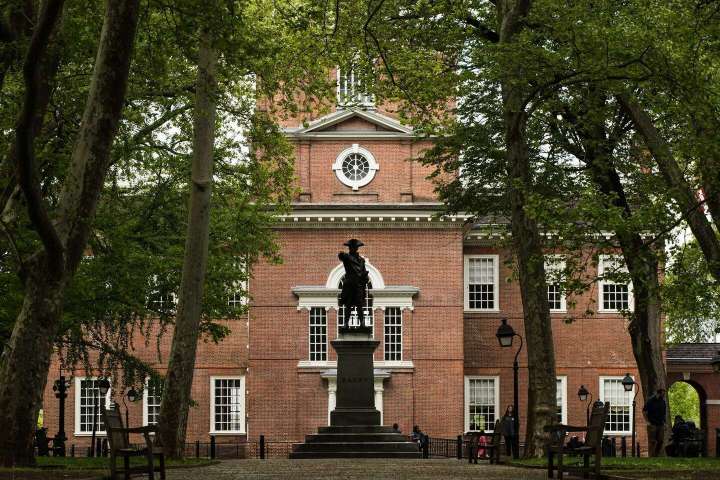There’s a lot to like about the burgeoning “national conservative” movement, which stands against the increasingly stale, pre-Trump intellectual orthodoxy on the right. But if a recent statement of principles is any guide, this new conservatism may be even more out of touch than the old.
Beware of ‘national conservatives’ who dispense with American ideals

But to win political elections, a movement must be for something, too. Which is why the latest brand of national conservatism, laid out by the Edmund Burke Foundation, fails spectacularly. Its vision clearly rejects America’s founding principles.
America dates its nationhood from the Continental Congress’s adoption of the Declaration of Independence on July 4, 1776. That document affirmed that the United States had a right to “the separate and equal station to which the Laws of Nature and of Nature’s God entitle them” because the British king had violated Americans’ natural rights. Its famous words — “we hold these truths to be self-evident, that all men are created equal, that they are endowed by their Creator with certain unalienable rights, that among these are Life, Liberty and the pursuit of Happiness” — are not only the inspiration for oppressed people around the world ever since. They are the foundation of who Americans are as a people.
Follow Henry Olsen‘s opinions
FollowBut the national conservative statement never mentions the idea of human or natural rights. Indeed, it implicitly rejects the core American notion when it claims that each nation “should chart its own course in accordance with its own particular constitutional, linguistic, and religious inheritance.”
The document makes specific statements about the signatories’ belief in limited government, self-government and recognition of minority beliefs. Its avoidance of any clear statement that the citizens of those nations have rights that a just government must recognize to be legitimate, however, sunders those beliefs from any firm grounding. They become mere preferences, which a national majority can ignore in the self-proclaimed national interest. Black Americans whose ancestors lived in the Jim Crow South understand the fault of that thinking.
If a nation’s “particular inheritance” is not democratic, for example, then a self-governing nation could legitimately form a nondemocratic government — much as Russian President Vladimir Putin openly draws inspiration from his nation’s despotic, czarist past. National conservative principles would apparently have nothing to say against these tyrannical pursuits.
Abraham Lincoln made this distinction deftly. In a letter in 1855, he criticized the Know-Nothings, a party that campaigned against Catholic immigration, for reading the Declaration as “all men are created equal, except negroes, foreigners, and catholics.” He said he would rather emigrate to Russia, “where despotism can be taken pure and without the base alloy of [hypocrisy],” than live in a country that pretended to love liberty but in fact oppressed its people.
The national conservative effort to effectively write the Declaration out of American nationhood is manifest. It cites the Constitution and lifts language from it, but never does the same for the Declaration. It contends that “all men are created in the image of God” but says nothing about being created equal. Indeed, though it frequently praises nations and liberty, it never states the basic truth of human equality, which is the starting point for America’s founding principles. This is not an accident.
The omission means any American political endeavor founded on the statement is bound to fail. American politics has largely been about the interpretation of the Declaration’s principles ever since its author, Thomas Jefferson, bested Alexander Hamilton’s Federalist Party in the election of 1800. Abraham Lincoln, Franklin D. Roosevelt and Ronald Reagan all rooted their transformative political campaigns in their interpretation of the Declaration’s meaning. The anti-slavery movement drew its inspiration from it, as did the early female suffragists and Martin Luther King Jr. American conservatism must reflect the Declaration’s centrality to American national identity, or it will fall in any contest to those who at least pay it lip service.
One must first understand America if one wants to put America first. The national conservative statement of principles has been weighed in the balances and been found wanting.






